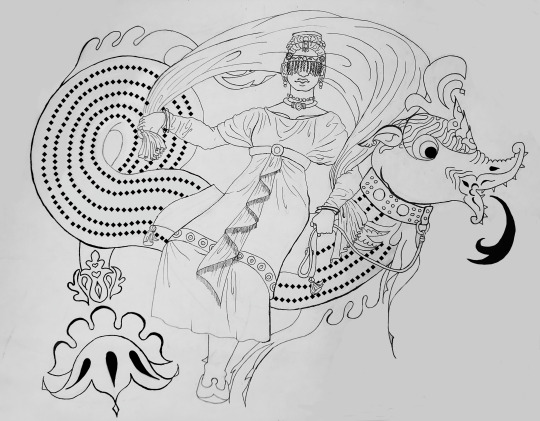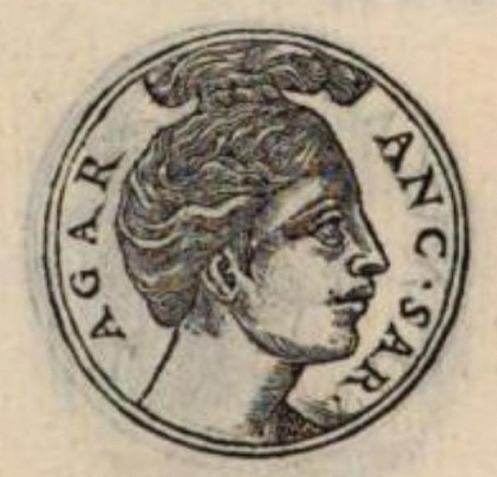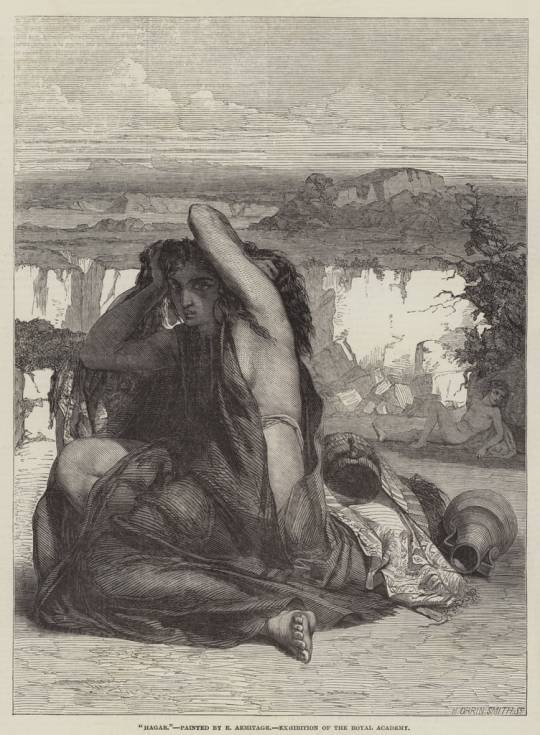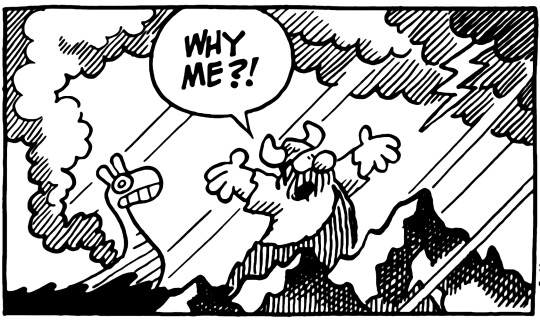#Hagar
Text
My mother took an Uber down yesterday to bring me some stuff to hang onto for her and one of the things she brought was a book called Praying the Names of God and she mentioned that she'd been reading it but that it didn't feel particularly relevant right now and all I can think is HAGAR HAGAR HAGAR slave-woman Hagar whose mistress's husband got a child off her, Hagar unrighteously abandoned and forsaken and cast out, Hagar, who called on God and called Him her God, Hagar who named God...
This morning, reading the last chapter of Ruth, and the elders of Bethlehem blessing her and Boaz and saying may she be like Tamar who bore a son unto Judah (Tamar, unrighteously forsaken and abandoned and persecuted, clever Tamar, righteous Tamar, blessed Tamar, Tamar who had God with her when all men abandoned and used her) and Rachel and Leah (mothers of the nation of Israel) and something about the nearer kinsman (who does not even merit a name) rejecting the Moabitess to keep his own inheritance intact and something about how the Moabitess was the grandmother of David and something about how Boaz immediately went to wed the Moabitess and how God is with even the least of His daughters, the ones the Judahs and near kinsmen and Jacobs and Abrahams of the world see as lesser...
I don't know. Just incoherent foaming at the mouth today.
26 notes
·
View notes
Text
Hagar is Comforted by a God Who "Sees" and "Hears"
After Hagar was forced to leave Abram and Sarai’s house because of the ongoing mistreatment and oppression from Sarai, in the second half of Genesis 16, “The angel of the Lord” found Hagar near a spring in the desert and encouraged her.
This is the first time in the Bible that, “The angel of the Lord” appears. Although there is some puzzlement between the connection between “angel of the Lord” and God, it is interesting to note that “angel of the Lord” only appears in the Old Testament. It is also intriguing that the “angel of the Lord” in this passage (and in others) talks with authority as if it is God himself, “I will so increase your descendants.” Furthering this connection, in verse 13, Hagar says, “I have now seen the One who sees me.”
In her collision with the Lord in the desert, Hagar learns that the Lord both “hears” and “sees” her sorrow.
The Lord found her wandering in the desert (a place of desolation throughout the Bible), running from oppression. He sought her out, saw her, spoke to her, and encouraged her.
God is a god who “sees” and “hears” the cries of the oppressed. This is one of many, many times, we will see God’s heart for the broken, victimized, and oppressed.
#christian faith#faith#faith in jesus#christian blog#christian living#christianity#theology#bible#bible scripture#bible study#bible reading#bible quote#bible verse#scripture#biblical#hagar
15 notes
·
View notes
Text
Current mood: Thinking about how God gave the man He chose to be the leader of His people the name by which he should refer to Him, but allowed a woman who was mistreated and marginalized by His people to name Him herself.
33 notes
·
View notes
Photo

Die Verbannung von Hagar von Friedrich Overbeck (1841, oil on canvas)
#kunst#kunstwerk#art#artwork#friedrich overbeck#künstler#artist#religion#religiöse kunst#religious art#hagar#verbannung#banishment#menschen#people#bibel#bible#gott#god#vater#father#herr#lord#beten#pray#glaube#faith#christentum#christianity#ölgemälde
12 notes
·
View notes
Text
Thirst
You stand in the desert
First time: I’m running away
Second time: get rid of her
Woman of breaking.
Seeking water
(A spring, a skin)
Seeking relief
You hear a voice
First time: Hagar
Second time: do not be afraid
Where have you come from,
where are you going?
Does anyone see?
Do you thirst enough to let me save you?
You stand in the desert
Seen, heard, found
Saved.
Why would you see someone like me?
You stand by the well
Jew: will you give me a drink?
Samaritan: how can you ask that?
Woman of questions.
Seeking water
(A jar, a well)
Seeking relief
Do you know who just asked you for a drink?
Where can you get this living water?
Do you thirst enough to let me save you?
You stand by the well
Seen, heard, known
Saved.
He told me everything I ever did.
Could this be the Christ?
I have now seen the One who sees me.
#zaki writes#poetry#hagar#woman at the well#this parallel gripped ahold of my mind and would not let go
22 notes
·
View notes
Text

Hagar riding Rahab
28 notes
·
View notes
Text
A Queer Look at Hagar's Story
A short reflection on this Sunday's lectionary text, Genesis 21:8-21

Name changes occur throughout scripture, but there is only one instance in which a human being directly names God!
That person is Hagar — the woman enslaved and then cast off by God’s own chosen people, yet who recognizes God's solidarity with her in a way that resonates with many marginalized folk, including queer & trans people of faith.
Back in Genesis 16, Hagar is forced to conceive a child with Abraham — her bodily autonomy denied — and then suffers abuse at Sarah's hand so painful that she prefers almost-certain death in the wilderness. While waiting to die, God comes to her, nourishes her, encourages her with the promise of a better future. For a time, Hagar must return to her oppressors.
This is a hard message, but It may resonate with queer and trans people who make the hard choice to find what safety they can while in the closet, or who choose to remain in relationship with family or faith communities that have caused them harm.
It also isn't the end of Hagar’s story: when the time is right, God leads her out — as told in this week’s text in Genesis 21.
Sarah continues to abuse Hagar, with Abraham as a passive bystander and enabler. In a society where only one of Abraham's sons can inherit his wealth and blessing, Sarah sees Hagar's son Ishmael as a threat to her son Isaac, simply by existing! In our own day and age, this myth of scarcity persists, causing us to hoard resources and compete needlessly.
Sarah cannot stand to see Hagar's child playing with her own son — as if they were equals! As if a slave boy should be having a moment of fun! She reads something sinister into the play — not unlike how some people today read sinister things into queer play, into drag queens and gender expansive youth.
Having convinced herself that Hagar and her son are a threat, Sarah gets Abraham to cast them out.
But again, God is with the outcast; God comes again to Hagar, who in Genesis 16 had given God the name El Roi — "God sees me.” This God is the god of her oppressors, yet Hagar recognizes that this god is her God as well! This god is a God who sees the suffering of the lowest of society, and responds.
God sees queer and trans people, too.
God is our God, too — those who hate us do not have a monopoly on the Divine!
And God walks with us through every struggle,
fueling us to fight the good fight and promising blessings to come.
___
Questions for reflection:
When have you witnessed God coming to the Hagars in our midst?
When has your community behaved like Abraham & Sarah, hoarding God's love as if there were not blessing enough to go around?
Can you imagine a world in which Sarah, Abraham, and Hagar meet again? What would Hagar need to feel safe to meet with her former abusers? What would Sarah & Abraham need to do to make things right?
___
Further Reading
Queer-specific resources:
Article: Out in Scripture's commentary for Proper 7 of year A, "Claiming God's Promise in the Midst of Exile" — connecting Hagar to supportive parents of LGBT children
Podcast episode: "Hagar and the Caravan" — connecting Hagar's story to that of Latin American trans women se"eking asylum
Essay: "Intersex Foremother and Forefather" — ancient texts suggesting that Abraham and Sarah were intersex
Other resources:
Sermon: "No Good Patriarchs: Solidarity with Hagar" — Exploring the messiness of how one person can embody both oppressor & oppressed, and how "good" people buy into unjust systems
Article: "Jesus and Hagar: the Form of a Slave" — Wil Gafney's connection between Hagar and Mary the mother of Jesus, through a womanist lens
Affirmation of Faith: "God of Hagar, Ishmael, Sarah, Abraham — God of oppressor and oppressed"
Essay: "Hagar and Sarah: Was Reconciliation Ever a Possibility?" — Exploring various writers' visions of what a meeting between these two women could look like
Video: Teaching children the story of Hagar, with an interfaith focus
Essay: connecting Hagar and Ishamel to the Genesis 22 story of Abraham nearly sacrificing Isaac
33 notes
·
View notes
Text



#art#my art#oc artwork#painting#This is them#Their niche#But more like their personality or character#Ugly?#i don't know#i just made something#Hagar#Aki
4 notes
·
View notes
Text

When HAGAR was pregnant, she scorned her mistress Sarah; therefore Sarah exposed her guilt most harshly and cast her out, since her husband had given her the right. So Hagar made her escape, but she was warned by an Angel, and returned to her master and bore Ishmael.
3 notes
·
View notes
Text
we’re all a hagar cast to the streets
homes burned to ashes at our feet
i roar a disconcerted beast; bared teeth
mane of curls in black ink
motionless as the deserted
bombed decayed remnants
of our peace,
our jewels stolen transported
put on display for you and you
our blood diamonds forged through
generations of war and lost ghosts
stumbling through the remains
looking for home
hagar,
where did your humbled scraped knees take you when your heart’s blood ran dry devoured by greedy fiends using you to fuel their agenda:
a messiah a president a wall a vote a body a vessel for a tyrant a life by the numbers,
how many brothers and sisters have we lost
today and how many more must we bury before the world ever knows that we created, loved, sang, danced
existed as everything but the monsters you paint us to be
we lit a candle for a new beginning in spring our shadows cast wayward to the dessert where hagar and i belong
we can’t go back home
there’s no yellow brick road
only the corpses of my people
—
i wrote this poem in 2021 while thinking of all the invasions and occupations the swana region has been through; what palis are going through, what generations of my family went through, and how devastating it is to witness and endure. parsha lekh lekha never fails to upset me as hagar is one of my favorite figures in torah. a young girl taken as a slave and made a mother, only then to be exiled on her own, baby ishmael in arms. hagar was left to fend for herself and her infant child in a vast world that had only shown her cruelty. as we learned from cain, exile is one of the most awful things to happen to someone, it is too great to bear. and yet palis are made to wander in the remains of humanity’s cruelty.
9 notes
·
View notes
Text
Seen by God (Genesis 16:7-15)
I believe that one of the great tragedies of modern Western civilization is that we can live among so many other people, yet not be seen by so many of them.
The angel of the Lord found Hagar near a spring in the desert; it was the spring that is beside the road to Shur. And he said, “Hagar, slave of Sarai, where have you come from, and where are you going?”
“I’m running away from my mistress Sarai,” she answered.
Then the angel of the Lord told her, “Go back to your mistress and submit to her.” The angel added, “I will increase your descendants so…

View On WordPress
#abram and sarai#abuse#alone#el roi#genesis#genesis 16#god sees#god&039;s comfort#god&039;s help#god&039;s love#god&039;s presence#god&039;s promise#god&039;s protection#god&039;s purpose#hagar#hope#ishmael#loneliness#mistreatment#spiritual life
3 notes
·
View notes
Text

Edward A. Armitage - Hagar.
7 notes
·
View notes
Text
Follow my DeviantArt profile for more daring pics ;)
8 notes
·
View notes


